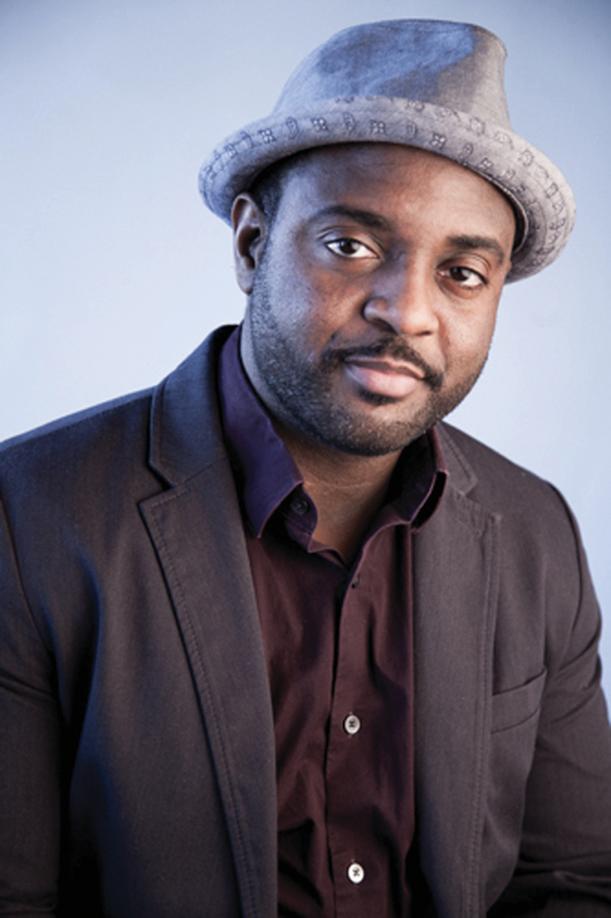At 16 Reginald Dwayne Betts was charged with carjacking and ultimately sentenced to nine years in prison. Some 20 years later, he’s an acclaimed poet and memoirist and a recent graduate of Yale Law School. Betts will discuss his award-winning poetry collection, “Bastards of the Reagan Era,’’ and his other work at 6 p.m. at the Boston Public Library on Boylston Street.
BOOKS: What are you reading?
BETTS: I am reading “Moby-Dick’’ to my son, which is a lot of fun, for him, too — at least sometimes, sometimes not. I’m also reading “The Epistemology of Resistance’’ by José Medina. It’s a philosophical book about the power dynamic between people who have certain types of knowledge and people who don’t. I just started to read Kaitlyn Greenidge’s “We Love You Charlie Freeman.’’ I haven’t read a book that takes itself seriously and is hilarious at the same time in a while.
BOOKS: Are you a fast reader?
BETTS: Yes. I also read Evelyn Wood’s book on speed reading. I had it checked out when I went to prison, and then it was lost, so they gave my grandmother a huge fine.
BOOKS: Did any book or author help you survive prison?
BETTS: The poem “Freckle-Faced Gerald’’ by Etheridge Knight really changed things for me. I was in the hole when I read that. I was 16. I had thought I should become a writer, but I didn’t know what that meant. Maybe a year and a half later I came across that poem. I found out that Knight had been in prison. I realized you could be a writer and have done time.
BOOKS: What was the range of books available to you in prison?
BETTS: I was at a lot of prisons that didn’t have libraries, but I bought a lot of books [by mail order]. If a prison has a library, classics, like Faulkner, are always available. At one prison I was able to do interlibrary loan with the local library. I ordered the poet Elizabeth Alexander’s books. That’s funny now that I think of it.
BOOKS: Who did you talk about books with in prison?
BETTS: My best job in prison was being a librarian. While checking out the books I talked to everybody about reading. I met this guy. We were both in the hole, and we would talk through the vent. He got me into Tolkien’s “The Lord of the Rings.’’ Once I got sent to the hole because my homeboy called me to his cell door to see his new books. There were these lines on the floor we weren’t supposed to cross. A guard said, “Dwayne, you are going to the hole. You know you aren’t supposed to cross that line.’’ My friend said, “I’m going too.’’ Then three other people said they would too. This was all over books.
BOOK: When you got out of prison and began working at a bookstore, how did that change your reading?
BETTS: I started two book clubs, one for kids five to 11 and one for 12 to 18. The older group read August Wilson’s play “Fences.’’ The point was that while discussing it we could talk about things we couldn’t talk about otherwise.
BOOKS: Which books did they like the best?
BETTS: They got into all the Walter Mosley books and the Stanley Tookie Williams book, “Blue Rage, Black Redemption.’’ I picked one book, and they picked one book. They picked that. I was nervous to do that. He was about to be executed, and none of them knew I had been to prison. It was a horrible book, not in terms of message, but it didn’t inspire a rich discussion.
BOOKS: What are you reading next?
BETTS: I just got into PhD program in law at Yale for two reasons: one, because I want to be a professor, and, two, it gives me time to write and read. Maybe that’s the only thing I’ve ever really been prepared to do — read. School is the one place where reading is like your job.
AMY SUTHERLAND
Follow us on Facebook or Twitter @GlobeBiblio.




